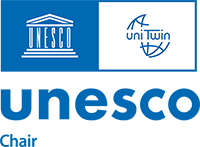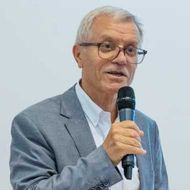- A
- A
- A
- ABC
- ABC
- ABC
- А
- А
- А
- А
- А
- HSE University
- UNESCO Chair on Future Studies
- News
- Foresight of the Future: How New Technologies Change Approaches to Strategic Planning
-
-
Education
-
Science
11 Myasnitskaya St., Moscow
+7 (495) 621-28-73
issek@hse.ru
Meissner D., Zhou Y., Fischer B. et al.
Technological Forecasting and Social Change. 2022. Vol. 178.
Abdrakhmanova G., Vasilkovsky S., Vishnevskiy K. et al.
M.: National Research University Higher School of Economics, 2022.
Saritas O., Burmaoglu S., Ozdemir D.
Futures. 2022. Vol. 137.
Sokolov A., Shashnov S. A., Kotsemir M. N.
In bk.: BRICS Comprehensive Innovation Competitiveness Report 2020. Scientific and technical documentation press, 2021. P. 36-98.

Foresight of the Future: How New Technologies Change Approaches to Strategic Planning

Driss Guerraoui, Founder and President of Open University of Dakhla (Morocco), dedicated his report to economic intelligence transformation – a system collecting and analyzing data that helps states and organizations make important strategic decisions. According to him, modern intelligence goes beyond the economy and covers politics, ecology, sports and other areas. The integration of AI and machine learning technologies, as well as the interaction of various stakeholders - from governments to universities - is becoming important.
“Modern economic intelligence involves data analysis at all levels: micro, macro and meso. This enables timely and rational decisions, achieving strategic goals, increasing productivity and competitiveness, preventing threats and planning for the future even in conditions of uncertainty,” says Driss Guerraoui.
Alexander Sokolov, Deputy Director of HSE Institute for Statistical Studies and Economics of Knowledge (ISSEK) noted that foresight and economic intelligence have much in common, and also recalled that Higher School of Economics and Open University of Dakhla signed an agreement in 2024, opening up broad opportunities for research cooperation.
Anna Grebenyuk, Deputy Director of the ISSEK Foresight Centre spoke about problems that arise when using the Delphi method, a popular methodology for forecasting and decision-making based on a series of anonymous expert surveys. It is believed that each new round of survey helps to come to a more balanced and thoughtful conclusion. However, a joint study by Anna Grebenyuk, Alexander Sokolov and their Japanese colleague Kuniko Urashima from Nagoya University, showed significant differences in expert assessments under survey second round, contrary to expectations.

Anna Grebenyuk
"Developed in the middle of the XX century, Delphi method is the gold standard of foresight methodology. However, this method has its drawbacks: it is not always possible to reach consensus in subsequent rounds, which can be explained by biased assessments or expert prejudgment, or a misunderstanding of issues essence. The existing methodology could be improved through precise wording in survey forms, new digital tools, and careful selection of specialists from different fields,” explained Anna Grebenyuk.
Surachai Sathitkunarat, President of the Office of National Higher Education, Science and Innovation Policy Council of Thailand, presented the country's first AI platform for developing public policy in the field of science and innovation. It combines AI, machine learning and foresight experts "live" assessments to identify trends and make strategic decisions.
"We live in an era of rapid technological change. The platform allows to make informed rational decisions and build strategic planning based on an integrated analysis of various data sources, including research, patents, non-academic reports, and expert opinions. This is the first such platform in Thailand, which has already proven itself in the field of healthcare. In the future, it can be used for strategic planning in the areas of economy, ecology, energy, national security, international relations,” said Surachai Sathitkunarat.
Irina Loginova and Anna Piekalnits, experts from the ISSEK Big Data Research Unit, also spoke about the AI role in the future predicting. In their opinion, Large Language Models and generative AI speed up analytical work, but can create false results (AI “hallucinations”). To maintain objectivity, it is important to be critical regarding the systems' conclusions and take into account the foresight studies specifics. The authors also presented ISSEK’s iFORA strategic analytics system and compared its work with Russian and foreign analogues.

Irina Loginova
"AI tools, including big data analysis, machine learning, and generative models, are changing established foresight practices. AI accelerates study and frees researchers from routine work, but at the same time, it can distort the results. The habit of relying on AI can lead to a decrease in the level of critical thinking. It is important to check the reliability of data obtained using machine learning models and find precise formulations of requests,” Irina Loginova noted.
The future of foresight lies in intelligent integration of technologies and humans role preservation in making strategic decisions, experts emphasized in conclusion.
- About
- About
- Key Figures & Facts
- Sustainability at HSE University
- Faculties & Departments
- International Partnerships
- Faculty & Staff
- HSE Buildings
- Public Enquiries
- Studies
- Admissions
- Programme Catalogue
- Undergraduate
- Graduate
- Exchange Programmes
- Summer Schools
- Semester in Moscow
- Business Internship
-
https://elearning.hse.ru/en/mooc/
Massive Open Online Courses
-
https://www.hse.ru/en/visual/
HSE Site for the Visually Impaired
-
http://5top100.com/
Russian Academic Excellence Project 5-100
- © HSE University 1993–2025 Contacts Copyright Privacy Policy Site Map
- Edit

